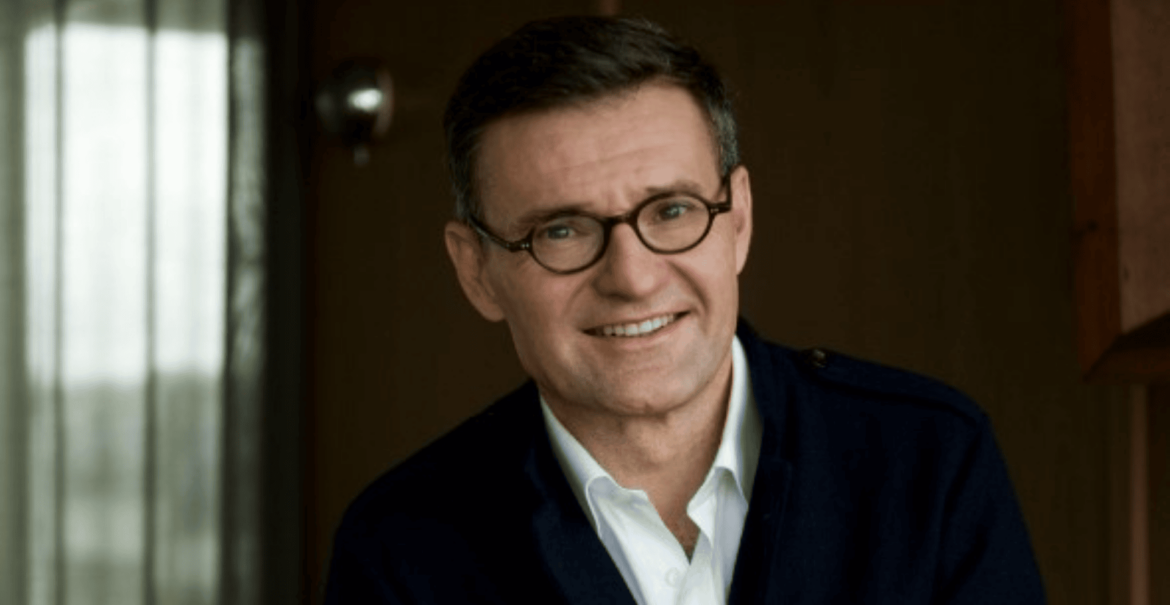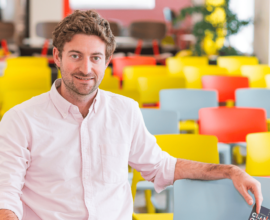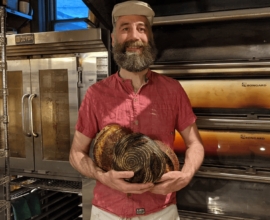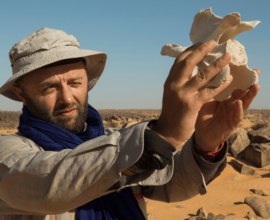Olivier Duha
Disrupting the world of customer relations
![]() Reading Time: 11 minutes
Reading Time: 11 minutes
Founder & CEO Webhelp
“I was certainly lucky to grow up in a healthy business environment and to have received an education that favoured due diligence. It is obvious to me that a company must be profitable to survive and grow. You need a simple business model where you understand what you are selling, know what it costs and can anticipate what you will make.
In the early 2000s, however, these principles were not in vogue. The era of the new economy favoured originality over profitability and we were talking about disruption, first mover advantage, winner takes all”, writes Olivier Duha in his book “Think Human – La révolution de l’expérience client à l’heure du digital” published by Eyrolles.
Twenty years later, the CEO and founder of Webhelp (120,000 employees in more than sixty countries) can look back on his company’s flawless track record, which quickly combined disruption and profitability to become one of the world's leading providers of customer experience and relationship services and solutions. “If there’s a message that I would like to pass on to future entrepreneurs, it would be to say that there are endless opportunities out there,” Olivier says, choosing to sum up his thoughts with the adage: The sky is the limit.
I was born in Dax, in the Landes area of southwestern France, a fairly poor, agricultural region where people like to live, party and play rugby. My childhood was good. My father was a self-taught retailer and I probably inherited the entrepreneurial values he shared with us at home. I was a very active child, turning my hand to many things and playing lots of sport.
I only became interested in studying when I got to secondary school and realised that learning and knowledge could be useful. Economics was my favourite subject. I think the first books my mother bought me were about economics; I remember reading Robert H. Waterman’s bestseller, The Price of Excellence, as soon as it came out. My good results in economics and maths naturally led me to business schools.
So you joined Audencia?
Not immediately. After glandular fever kept me in bed for a good part of my preparatory years in Pau, I got into Sup de Co Poitiers (now Excelia, editor’s note). In 1992, I went on to Audencia to follow a Master’s degree in Management Consulting Engineering. I have always been interested in the analytical and strategic dimensions of the business world and the Audencia degree, very much focused on the engineering consulting profession, suited me perfectly. It was an exciting year, which led to an internship at L.E.K Consulting.
On the subject of internships, I remember one of my classmates wasn’t sure which direction his career should be taking so hadn’t secured an internship. I had a second internship offer in HR consulting from Hay Management, which I turned down but managed to convince them to take my friend instead! At the time, he didn’t find the opportunity particularly motivating but 30 years later, after an entire career in HR, he is a successful HR Director.
How did your first professional experience leave its mark on you?
I joined L.E.K Consulting at the same time as two other trainees from HEC and Centrale. The head of L.E.K. got me worried by telling me that there would be only one job up for grabs at the end of our internships, and that my Audencia degree would probably not be a match for the ones from HEC and Centrale! In short, I was challenged from the start, and I realised that adversity suited me, that it made me want to surpass myself. In the end, I was the one who got hired!
And this story repeated itself quite quickly. L.E.K is an English firm and after a six-month stay in the London office, I returned to the Paris office and applied for a position in Sydney. Again, I was told that I was not at the top of the list and again, I got Sydney! It was the second small victory in my young career. I stayed in Australia for one year and it was an important chapter in a career that I wanted to be as international as possible.
What do you think your bosses saw in you that made the difference?
I think I had a higher capacity for work than my colleagues did and I certainly remember working a lot. I also think I am extremely reliable, serious and methodical. Then again, I am just repeating what I was told at the time! I am a hard worker and I have a real work ethic. I’m not necessarily the smartest, but I think I was appreciated for this combination of discipline, conscientiousness and enjoyment of work. You can only work hard if you enjoy it! I was perhaps a little more passionate than the others were. It was all these things that made me more quickly spotted by managers, consultants and partners.
Why did you decide to return to the classroom to pursue an MBA?
I loved working in consulting. The positioning of L.E.K Consulting was very analytical. It was a lot of thinking about beautiful strategy cases. Intellectually, I found it fascinating but I had been there for five years and had reached a stage where, in order to move my career forwards, it was essential to do an MBA. In 1997, I applied to and was accepted at INSEAD. To be honest, at the outset, I wasn’t particularly enthusiastic about becoming a student again, it was just a means to an end. However, once I was there, I had an amazing year and I often tell my children how great it was to be able to return to school at the age of 30. First, because you have a much higher level of maturity. Secondly, because you can relate and refer to your business experience. Nothing is conceptual anymore, nothing is theoretical and everything connects much more easily with reality. There were 47 nationalities in my class making for an intense and intellectually rich experience.
What did you do after your MBA?
I went back to consulting because I felt good there. I loved L.E.K. and fully intended to return to them but I had the opportunity to join Bain & Company, a larger American firm. Returning to professional life came with a heavy workload. It was the end of the 1990s when the Internet was taking off and you could feel that a new world order was about to emerge. Even though I loved what I was doing at Bain & Company, I felt the urge to become an entrepreneur. I just had to find the right idea. During that time, I recruited Frédéric Jousset to strengthen the team for the last case I managed. However, he wasn’t really suited to consultancy. Instead, he had a very entrepreneurial profile, so I suggested that we set up a company together, which would become Webhelp. We remained partners for many years but he has since taken a different path and I am now on my own at the helm.

Can you take us through the inception of Webhelp?
The company started on a whim. Afterwards, there are things that seem obvious, but at the time, it was more a question of intuition. It’s not entirely rational, you just feel that a combination of factors is there and you have to seize it. There is also a bit of luck, but as Pasteur said, “Chance favours only the prepared mind”, and I think I was prepared.
We realised that the Internet was turning into a huge library, so it needed a librarian. At a time when Google didn’t yet exist, the idea was to build a human-assisted search engine. We wanted to disrupt the world of the call centre by imagining a much more digitalised customer relationship, through interfaces such as emails, chats, videos, etc.
This idea was very successful and we quickly attracted big investors like Bernard Arnaud, via Europ@web, our first reference shareholder. We created a buzz and the product quickly gained notoriety but, it wasn’t profitable! At the time, monetisation through advertising and data worked well in theory but was very different in reality. Each time someone asked a question on the platform, we lost money, which meant I knew how many days were left before I had to rewrite my CV!
We remedied this by moving from B2C to B2B. We quickly won our first clients who were Internet service providers and the first e-commerce sites. We recruited ex-consultants from consulting firms to strengthen our upstream consulting, we came up with a very techy, innovative offer and we decided to relocate resources to reduce costs. All these decisions explain the early success of Webhelp, which then established itself in France as the new player in customer relations outsourcing.
If you had to share one piece of advice that you learned from your entrepreneurial adventure, what would it be?
I think we all too often underestimate a company’s potential for development. If I had a message to pass on to future entrepreneurs, it would be to look out for a world of opportunities and possibilities. The expression “the sky’s the limit” is true and even when you reach your goal, there’s always more territory to explore.
When we launched Webhelp, we set ourselves the goal of becoming the leader in France. This seemed like a far away objective for such a small company, but we succeeded. France represents 4.5% of the world’s GDP, which means that 95% of the wealth is elsewhere, so our next objective was to become number one in Europe. From where we stood, it seemed almost impossible to achieve but we did. So now, when I tell my teams that today’s objective is to be world number one, they think I’m crazy but I always tell them: “If you don’t laugh when I tell you about my objectives, then they are not ambitious enough!”
At the end of the day, the mountain always seems smaller once you’re at the top. This is something I have learned over the past 20 years. As an entrepreneur, it has been a real discovery to realise how much you should not be afraid of thinking big.
However, I have to admit that we have never had any serious failures. Of course there have been ups and downs and difficulties, but no major events that could have endangered the future of Webhelp. This is perhaps partly because we have a very sophisticated risk management system. Inevitably we take risks, because in order to move forward you have to be daring, but the thoroughness of our analysis means that we have never put the company at risk, even in the context of the 27 acquisitions we have made.
Do you attach particular importance to your professional environment?
I have one very strong belief that I repeat to my teams: start with the who not with the what. The women and men who work with us are more important than anything else is. For me, human capital is the combination of an individual’s intrinsic abilities – i.e., their skills on a subject – and their ethos. The right skills won’t work if the right mind set isn’t there.
I spend a lot of time recruiting the right people. I put ethos and mind set at the top of my recruitment criteria. Ethos in a company is like education in a family. You can train people in skills they don’t have, but you can’t change their ethos. Of course, there is no right or wrong ethos, but it doesn’t work to have too many different ones in a company. Diversity is important but it has its limits. A certain cultural homogeneity is necessary to avoid the risk of inertia. So we make sure we have as much diversity as possible in our ranks, while ensuring a certain cultural coherence that tallies with our company. The American professor and consultant Peter Drucker used to say “Culture eats strategy for breakfast”, and it is so true!
Are you prone to stress?
Yes, I am, but I think there are two forms of stress, one that paralyses and one that energises. The latter generates dopamine, and as far as I’m concerned, it increases my energy tenfold. When someone tells me: “With Audencia, compared to HEC and Centrale, you won’t necessarily get a job after your internship”, it stresses me out but motivates me at the same time! I perform better in difficult situations.
In previous interviews, you mention sporting activities. How do you fit sport into your busy routine?
I still manage to do a lot of sport. Rugby and tennis was for when I was younger; now it’s mostly skiing (hors-piste or sometimes extreme) and mountain activities in general (hiking, mountaineering, in winter and in summer)… I also manage to fit in a round of golf when I’m travelling to the four corners of the globe.

Think human, think peace appears on your computer wallpaper. Why did you write this?
Think Human is the Webhelp baseline that goes with our logo because in our industry, human resources are the most valuable asset. In the world of customer relations, the heart of the reactor is the human being.
We assist major brands with their customer interaction issues. We are a consulting firm, an IT firm and a contact centre operator all in one. Therefore, we either position ourselves as a technology company or as a human resources company. I believe that the essential resource is people, not technology. All companies in the sector can acquire the same technology. However, when you manage to retain human resources through the way you treat your employees, you have a competitive advantage that is difficult to copy. Webhelp is recognised for this very people-first approach. In R&D, my investment priorities are training, onboarding, people engagement initiatives, etc.
I also believe that Think Human should be at the heart of brand thinking, for two reasons. On the one hand, the digital effect means the balance of power between brands and consumers has changed in favour of the latter. Secondly, we have moved to an experience economy where we no longer judge just the cost-benefit of a product but also everything that happens before and after the purchase, i.e., the entire customer journey.
I added Think Peace on 24 February 2022, the date Russia invaded the Ukraine…
You took your base line, Think Human, to name your foundation…
We did indeed create the Think Human Foundation with the aim of generating giveback on the subjects of inclusion and education, interesting subjects related to the fact that we are in a very people-intensive business. Initially, it was a fund supported by the company’s founders and shareholders. Now, the idea is to get all employees to participate, even if they only give a few euros. A few euros multiplied by 120,000 people makes for a sizeable annual budget.
What are you most proud of in your career?
Whenever I visit Webhelp sites around the world, I always take the time to have round table discussions with the employees who work in the contact centres. I want to know their take on the company’s culture by asking them the question: “How do you talk about Webhelp to your friends and family? I am very proud of the consistency of their answers, which underline that we make a difference through our social management policy. I am very touched by this. The consistency of our HR policy throughout the company is probably the thing I am most proud of.
Can you take us through a typical day for you?
There are two. The first is when I get to work from home. I can get a lot done by video. In this case, I like to get up early; I start by reading the papers, working and doing 45 minutes of sport. By 9.30am, I’m ready for my first meetings. I work almost seven days a week. I lighten up a bit at the weekend but I still work a bit because I like it.
The second sort of day is when I am travelling. We are present in about sixty countries, with 230 production centres and contact centres. I have to go and see my customers, accompany my teams so I spend more than 200 days a year travelling.
Do you nurture an entrepreneurial spirit in your five children?
It’s important to be influential without being manipulative or coercive. I don’t want to interfere; they have to find their own way and there are no wrong routes to go down. Just because I’m an entrepreneur doesn’t mean they have to do the same! The value of example, which is valid whatever the profession, is the desire to do well, discipline, seriousness, effort. Personally, I try to do everything to the full, and not just on the job.
Your LinkedIn profile mentions that you are a graduate of the Wine and Spirit Education Trust. I guess this means you have a favourite wine!
That’s correct! I am passionate about discovering vineyards all over the world. My favourite wine is Emidio Pépé from the Abruzzo region in Italy… to accompany an autumn meal (with game and mushrooms…).
What are your plans for the weekend?
Some friends are coming to stay with us in Brussels. We’re going to take a little trip to Bruges and Antwerp. A bit of sightseeing, a bit of sport, and a bit of work of course! (laughs)
Where do you see Webhelp five years from now?
Initially we developed the service side where our teams accompany brands throughout the world. We then added an IT department to offer technological solutions in the world of customer experience and then a design solution consulting business for companies that are transforming. I think that the consulting business in particular will become increasingly important. Proportionately, of course, we are getting closer to the world of Accenture on the customer experience side.



